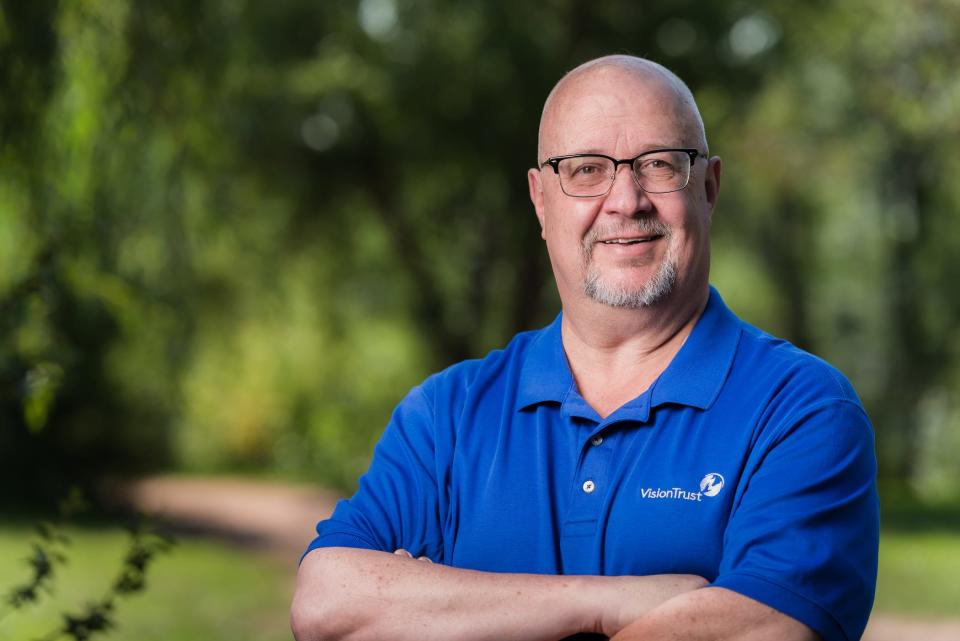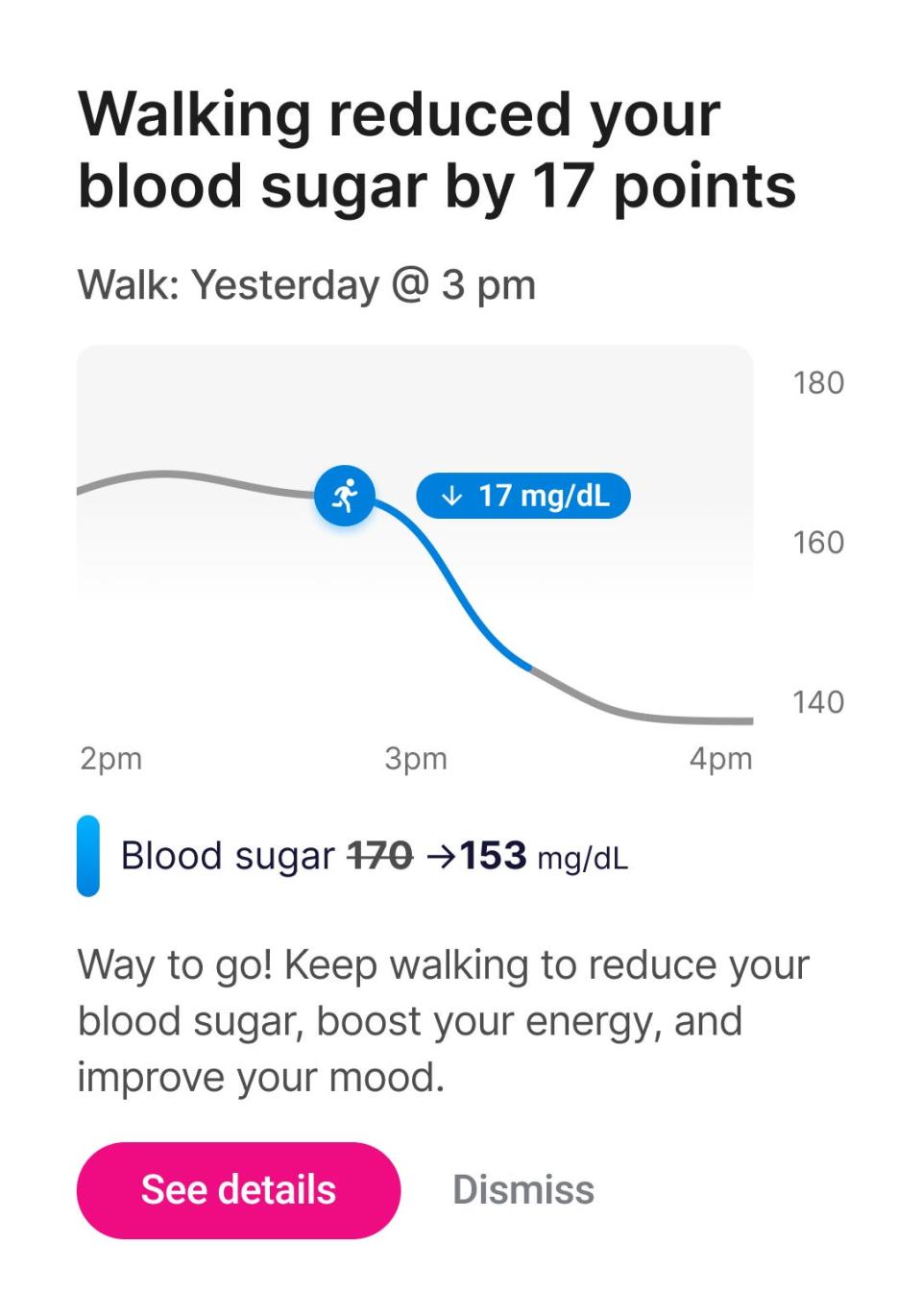2 ways to improve your blood sugar, from a man who reversed his type 2 diabetes and quit Ozempic
A man with type 2 diabetes put his disease into remission by following advice from a "digital twin" app.
The app personalizes nutrition and exercise tips, based on what he likes, and what works for him.
He's started walking more, and adding some vinegar to his water glass.
Ozempic isn't for everyone, and Devlin Donaldson says he is just one of those people.
After spending about 10 months on the injectable drug, the CEO said he had lost a little bit of weight — maybe five or 10 pounds — but it wasn't having a noticeable effect on his blood sugar, and he felt like giving up. (Research suggests around 1 in 6 people may not respond much to GLP1s.)

So he tried another approach.
Donaldson started:
wearing a continuous glucose monitor (CGM) to observe how and when his blood sugar levels fluctuate
putting on a smartwatch that tracks his sleep and his movements
stepping on a digital scale regularly that measures weight and body composition, and
using a blood pressure cuff to keep track of his blood pressure.
Then, with the help of a "twin" on his phone, he figured out that a few useful habits did move the needle on all those device readings.
He was one of the first members of Twin Health, a new "digital twin" health program geared toward putting diabetes in remission and also getting people off GLP-1 drugs while maintaining their weight loss. Over time, with encouragement and feedback from the twin on his phone, Donaldson developed his own very personal health strategy that helped him lose over 40 pounds, including 10 inches around his waistline.
He also reversed his diabetes, putting his disease in remission, and making it possible to quit many of his medications. His hemoglobin A1C levels, which are a key measure of how well-controlled a person's blood sugar is, went from 10.1% to 6.1%. An A1C above 6.5% is considered diabetic.
"There's all kinds of things I know now I can do to stop that rise in glucose," he told Business Insider.
Here are two of his quick tips:
1: When he sees his blood sugar levels going up, he gets up for a walk

When Donaldson's "twin" suggested he start getting in around 10,000 steps a day, he was taken aback.
"You're crazy. That is not going to happen," he remembers thinking.
The first walk he took felt impossible. He told his wife he needed to quit and go home after about 3,000 steps.
But, over time, the feedback from his app encouraged him along.
He could graphically observe how movement improved his blood sugar. It was his own little diabetes masterclass sitting in his pocket; a window into seeing how his muscles really do take up more glucose to fuel him onward during his workouts.

Now, when he sees his blood sugar going up, he laces up.
During the pandemic, he was getting up to 15,000 steps in per day as his schedule was very flexible, with far fewer in-person meetings. Now, he tends to log more like 8,000 steps a day, he says — which experts agree is still more than enough walking to trigger some serious health benefits.
2: He also dilutes a little vinegar into his water glass

Donaldson was no stranger to apple cider vinegar when he started the Twin program. He remembers how his grandmother used to sing its praises as a health boon.
But he'd never tried it himself. Must be some sort of old wives' tale, he thought.
Twin suggested he might want to try adding a little bit of ACV to his water glass throughout the day — just a tablespoon would do. There isn't a ton of research on this technique, but some small studies suggest that the vinegar does have a very mild effect on blood sugar control.
Donaldson sips his slowly throughout the day. He isn't a huge fan of the taste, but it's tolerable.
Apple cider vinegar isn't totally without risks, especially for people who drink it straight.
"It's very acidic," registered dietician Nicola Guess, who studies type 2 diabetes remission and treatment through diet interventions at Oxford University, told Business Insider.
Twin Health said it does not recommend ACV to people with acid reflux, dental problems, or "other medical conditions impacted by high-acidity foods."

These days, Donaldson doesn't go anywhere without his Twin. He feels empowered by it, even if he can't immediately feel or see the impact it is having on his body.
"At the end of the day, you're the one going for the walk and deciding what to eat and all of these different things," he said. "But you wouldn't have known as much without it."
Read the original article on Business Insider

